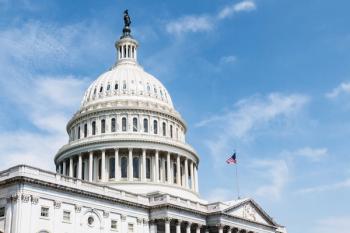
The Office of Inspector General said that some veterans’ medical centers must communicate more about transfers between VA facilities. Some missteps could have affected patient safety, the OIG said.

The Office of Inspector General said that some veterans’ medical centers must communicate more about transfers between VA facilities. Some missteps could have affected patient safety, the OIG said.

With AI projected to have a key role in healthcare in the future, hospital and health system leaders could confront questions of liability they haven’t encountered.

The House passed a bill to streamline authorization requirements in Medicare Advantage plans. The measure now moves to the Senate.

Warner Thomas has led Ochsner for 10 years. The Louisiana system has named Pete November as his successor.

Health systems are dealing with financial losses and staff shortages. Kristin Pothier of KPMG spoke with Chief Healthcare Executive about managing during economic uncertainty.

Most doctors say they see the value in telehealth and remote patient monitoring, but they just beginning to incorporate augmented intelligence, an American Medical Association survey finds.

A state board in Illinois initially voted against the deal, but then said it would give the systems more time to submit information. The proposed merger would create an organization with $27 billion in annual revenue.

In the second part of an interview with Chief Healthcare Executive, he says he hopes health leaders are moving with urgency on their digital transformation.

The American Hospital Association is urging lawmakers to support key programs that are set to expire at the end of the month. More than 130 hospitals have closed since 2010.

A review of insurance claims data found sharp increases in admissions and emergency department visits.

Before addressing the World Health Organization, he spoke with Chief Healthcare Executive about the need to invest in technology to improve health around the world.

Some hospitals and pharmacies are advising against providing certain drugs, the AMA and other groups said. They contend new state laws are hurting patient care.

Hospitals cannot afford outdated digital portals, poor communication with patients or a clunky billing process that puts the onus on the patient.

University Hospitals in Ohio names a chief diversity officer, Riverside Health System announces a change at the top, and more leaders make moves.

More than 130 rural hospitals have closed since 2010. Watson, the co-founder of Motient, a healthcare technology company, spoke with Chief Healthcare Executive about sustaining rural hospitals.

Trinity acquires MercyOne’s 16 medical centers and hundreds of sites of care. Not many hospital deals are happening, but analysts expect the pace to pick up in the near future.

The rule goes into effect in December. Health and Human Services Secretary Xavier Becerra said the policy aids immigrants and is ‘in the interest of all Americans.’

A recent court ruling allows plaintiffs to file suits in counties where juries give bigger awards. Pennsylvania hospitals and doctors say it will drive up costs and limit access to healthcare.

Millions of Americans suffer from visual impairments, and many are having trouble using telehealth services.

The two West Virginia organizations announced their merger plans several months ago. Charleston and Mon Health facilities will retain their identities.

CVS is aiming to acquire Signify, and its network of doctors caring for patients at home, in an $8 billion deal. Experts say it shows the home could be the future of healthcare.

The Medical Group Management Association said the cuts would lead to reduced access to care. Some groups said they could be looking at reducing staff or closing locations.

The Austin-based company says it’s redesigning the engagement model for behavioral health. Iris is working with nearly 200 hospitals and health centers.

Researchers found Medicare beneficiaries who received treatment via telehealth were less likely to suffer an overdose, suggesting a greater need to expand services and treatment.

Health systems can retain nurses by focusing on professional development across all the career stages.